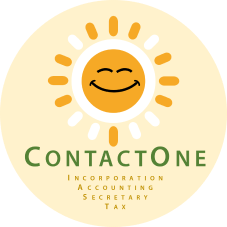The landscape for corporate tax in Singapore is undergoing a seismic shift with the introduction of the Multinational Enterprise (Minimum Tax) Act 2024. This legislation, enacted to align with the global minimum tax framework, Pillar Two of the OECD’s Base Erosion and Profit Shifting (BEPS) 2.0 initiative, demands a proactive response from large Multinational Enterprises (MNEs). The new regime fundamentally alters how companies compute their tax liabilities and where their profits are taxed.
Understanding the New Minimum Tax Regime

The global minimum tax framework mandates a 15% minimum effective tax rate (ETR) for MNEs with annual consolidated group revenue of €750 million or more. Singapore’s Act implements two core components from the framework. The first is the Domestic Top-up Tax (DTT), which applies to in-scope MNE entities in Singapore whose ETR falls below 15%, ensuring the tax revenue remains domestic.
The second is the Multinational Enterprise Top-up Tax (MTT), which applies the Income Inclusion Rule (IIR) to Singapore-parented MNEs for low-taxed profits of their foreign entities. This dual implementation, effective for financial years starting on or after 1 January 2025, necessitates meticulous preparation.
An experienced tax agent in Singapore can provide essential guidance on compliance, particularly regarding data collection and jurisdictional calculations.
Implications for MNEs in Singapore
For MNEs that have benefited from Singapore’s competitive tax incentives, the minimum 15% ETR means the traditional tax advantages may be neutralised. Companies must now move beyond simple tax planning and focus on value creation, as a low headline rate no longer guarantees a low effective tax burden
The new rules also introduce significant complexity, requiring MNEs to track hundreds of data points for compliance, demanding an overhaul of existing tax reporting systems. Consulting a tax agent in Singapore is crucial for conducting impact assessments and integrating the new reporting requirements with your financial systems to maintain compliance readiness.
Actionable Insights for Compliance
To navigate this new environment effectively, MNEs should prioritise a comprehensive diagnostic review of their global operating structure and financial data landscape. This includes mapping out data sources and identifying gaps needed for the GloBE Information Return (GIR) and ETR computations, vastly exceeding existing reporting requirements.
Furthermore, MNEs should re-evaluate the impact of existing tax incentives and consider exploring non-tax-related value drivers, such as talent pool, infrastructure, and supply chain efficiencies, when making investment decisions. Partnering with a skilled tax agent in Singapore ensures your strategy is compliant and optimised for the new global tax floor.
Secure Your Compliance Future
Contact the experts at ContactOne to ensure your business remains compliant and strategically positioned in the global minimum tax era.





